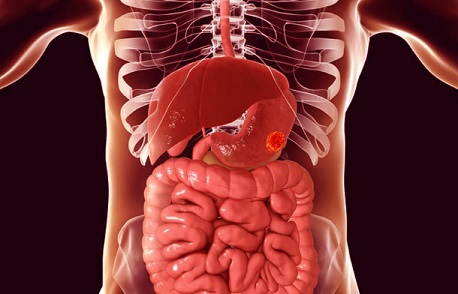Scientist From Romania Discover That Dopamine Influences Gastric Cancer Progression
Nikhil Prasad Fact checked by:Thailand Medical News Team Dec 08, 2024 4 months, 6 days, 9 hours, 50 minutes ago
Medical News: A groundbreaking study reveals how dopamine, a chemical traditionally associated with the brain, influences gastric cancer progression. Conducted by researchers from the University of Medicine and Pharmacy of Craiova, Romania; “Carol Davila” University of Medicine and Pharmacy, Bucharest, Romania; and Stefan cel Mare University, Suceava, Romania, this work connects dopamine to the complex mechanisms of gastric cancer. The findings could open new avenues for therapies targeting this devastating disease.
 Scientist From Romania Discover That Dopamine Influences Gastric Cancer Progression
The Role of Dopamine in the Stomach
Scientist From Romania Discover That Dopamine Influences Gastric Cancer Progression
The Role of Dopamine in the Stomach
Dopamine, a neurotransmitter best known for its role in mood and behavior, also plays a critical role in the stomach's functions. It regulates gastric acid secretion and maintains the stomach lining's integrity. Dopamine also possesses anti-inflammatory properties, reducing harmful cytokines linked to gastric diseases. However, in cases of gastric cancer, dopamine can act as a double-edged sword - helping in some processes while exacerbating others.
This
Medical News report explores the intricate relationship between dopamine and gastric cancer through mechanisms involving specific proteins, signaling pathways, and tumor growth factors.
Dopamine Receptors and Gastric Cancer
Dopamine acts through two primary receptor types: D1-like and D2-like. These receptors are present in the gastrointestinal system and play roles in regulating blood flow, inflammation, and cell signaling. In gastric cancer, the dopamine receptor D2 (D2R) appears to be a critical player. It inhibits pathways that promote tumor cell growth and angiogenesis, a process essential for tumor survival and spread. Studies showed that D2R agonists could slow gastric cancer progression, marking it as a potential therapeutic target.
Key Findings from the Study
The researchers identified dopamine as a regulator of specific molecular pathways in gastric cancer:
-DARPP-32 and STAT-3: DARPP-32, a dopamine-regulated protein, enhances STAT-3 activity. STAT-3 is involved in tumor growth, invasion, and angiogenesis. High levels of DARPP-32 and STAT-3 were found in cancerous tissues compared to normal ones, making them markers for gastric cancer progression.
-DARPP-32 and CXCR4: Another protein, CXCR4, linked to cell invasion, works in tandem with DARPP-32. Together, they enhance cancer cell migration and invasion, crucial steps in metastasis.
-Anti-angiogenic Properties: Dopamine inhibits vascular endothelial growth factor (VEGF), a molecule critical for blood vessel formation in tumors. This suppression can potentially slow or stop tumor growth.
Therapeutic Implications
The findings suggest that targe
ting dopamine signaling pathways, particularly through DARPP-32 and CXCR4, could lead to new treatments. By inhibiting these pathways, it might be possible to slow cancer progression and improve patient outcomes. The research also highlighted the potential of D2R agonists as a treatment strategy, as they not only inhibit tumor growth but also suppress angiogenesis.
Challenges and Future Research
While promising, the study also raises questions. Dopamine's dual role - sometimes inhibiting and other times promoting tumor growth - complicates therapeutic approaches. Researchers call for more extensive studies to fully understand these dynamics. Moreover, identifying genetic variations in dopamine-related pathways might provide personalized treatment options.
Conclusions
Dopamine, traditionally viewed as a neurotransmitter, is now recognized as a significant player in gastric cancer. It influences key proteins like DARPP-32 and STAT-3 and pathways involving CXCR4 and VEGF, all of which are critical in cancer progression. By targeting dopamine's signaling mechanisms, researchers hope to develop innovative therapies that could curb the growth and spread of gastric cancer. This study marks a step forward in understanding how biochemical regulators outside the central nervous system contribute to cancer and offers hope for more effective treatments.
The study findings were published in the peer-reviewed journal: Biomedicines.
https://www.mdpi.com/2227-9059/12/12/2786
For the latest Cancer News, keep on logging to Thailand
Medical News.
Read Also:
https://www.thailandmedical.news/news/new-study-links-helicobacter-pylori-infection-to-higher-risk-of-stomach-cancer-in-east-asia
https://www.thailandmedical.news/news/new-study-explores-the-genetic-connection-between-covid-19-and-gastric-cancer
https://www.thailandmedical.news/news/the-role-of-epigenetic-modifications-in-gastric-cancer
